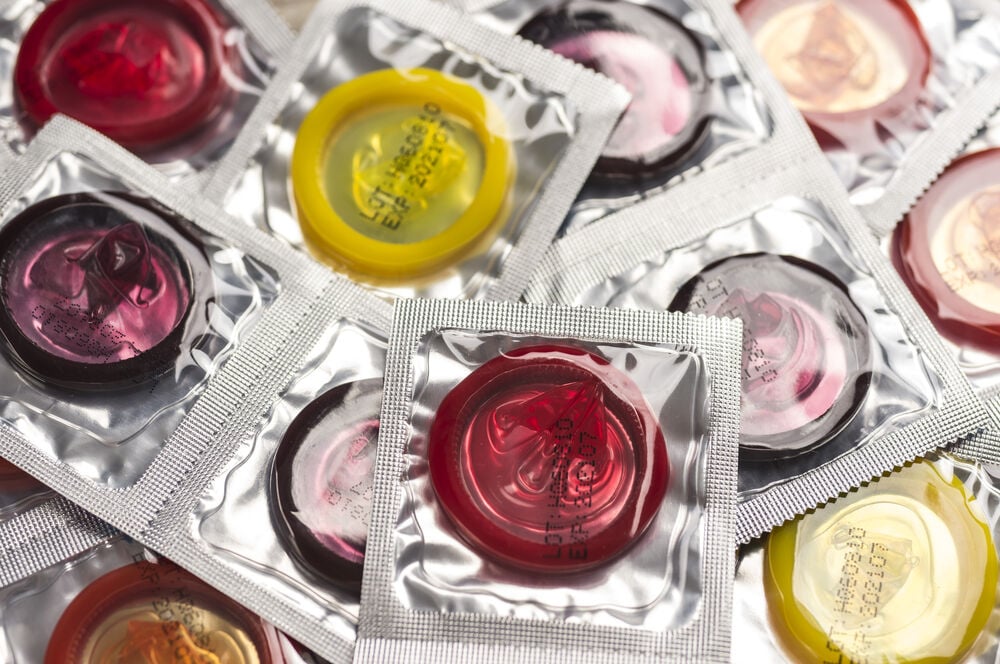When you have sex, you may experience increased nipple sensitivity, blood pressure, pulse, and vaginal lubrication. In addition, your vagina will probably temporarily expand or lengthen.
-
Tracking cycle
-
Getting pregnant
-
Pregnancy
-
Help Center
-
Flo for Partners
-
Anonymous Mode
-
Flo app reviews
-
Flo Premium New
-
Secret Chats New
-
Symptom Checker New
-
Your cycle
-
Health 360°
-
Getting pregnant
-
Pregnancy
-
Being a mom
-
LGBTQ+
-
Quizzes
-
Ovulation calculator
-
hCG calculator
-
Pregnancy test calculator
-
Menstrual cycle calculator
-
Period calculator
-
Implantation calculator
-
Pregnancy weeks to months calculator
-
Pregnancy due date calculator
-
IVF and FET due date calculator
-
Due date calculator by ultrasound
-
Medical Affairs
-
Science & Research
-
Pass It On Project New
-
Privacy Portal
-
Press Center
-
Flo Accuracy
-
Careers
-
Contact Us
What Happens When You Lose Your Virginity?


Every piece of content at Flo Health adheres to the highest editorial standards for language, style, and medical accuracy. To learn what we do to deliver the best health and lifestyle insights to you, check out our content review principles.
These are physiological responses to stimulation that can happen no matter when you have sex. The hormones that surge through your body when you have sex can sometimes cause strong emotions afterward.
What does it mean to lose your virginity?
Some people believe in the concept of virginity. However, the traditional definition of virginity, which is the first time a person has penetrative penis-vagina intercourse, marginalizes sex between people who aren’t heterosexual.
Today, many people think the concept of virginity is antiquated and places unnecessary pressure on people to either have or not have sex. For some people, having sex for the first time may be an important milestone in their lives, and this is totally normal. For other people, it’s just a thing that happened that doesn’t mean much at all, and that’s fine too! You may find it helpful to reflect on how you feel about it before you have sex so you can share the information with your partner.
What happens to your body when you lose your virginity?
So, what happens to your body when you lose your virginity? Sex can cause a number of mostly temporary changes to your body. Here are a few of them:
Vaginal changes
It’s a myth that having sex can change the elasticity of your vagina, or that people who have a lot of sex become “loose.” The vagina is capable of delivering a baby. A penis is not going to permanently alter the elasticity of the vagina.
For some people, sex can feel uncomfortable. This can be because it’s a sensation that you’re not used to or because you’re having sex when your vagina isn’t lubricated enough. More foreplay can increase vaginal lubrication, which can make sex more comfortable. If the vagina is sufficiently lubricated, sex shouldn’t be painful. If you experience pain every time you have sex, you might want to talk to a health care provider who can help you figure out the signals your body is sending you.
Breasts
For some people, having sex causes their breast tissue to swell. This happens because sexual arousal can increase blood flow to your breasts.

Nipples
During sexual arousal, blood circulation around the nipples increases, and your nipples might become more sensitive than usual. This is also a temporary change that accompanies arousal and will go away afterward.
Hormones
During sex, your brain releases lots of chemicals, including endorphins and the hormones dopamine and oxytocin. Oxytocin is sometimes called the “love hormone” or the “cuddle hormone.” This cocktail of powerful neurochemicals can make some people feel trust or a very strong bond with the person they had sex with. Their brain might also make an association between the person and feeling good. It can be helpful to remember that these thoughts might be caused by a temporary surge of hormones and don’t necessarily reflect your deeper feelings.
Can you get pregnant after your first time having sex?
The short answer is yes. Whether it is the first time or the thousandth time, you can get pregnant from having sex with a male partner. Anytime semen (cum) enters your vagina, you can become pregnant. Before a male ejaculates, the penis releases a fluid called pre-cum. Although uncommon, sometimes live sperm are present in pre-cum, which means it can also cause pregnancy. Anytime cum or pre-cum comes into contact with your vagina, pregnancy is possible, even if you don’t have sex. If you are sexually active and do not want to get pregnant, it is important to use a method of birth control like condoms or the pill.

Learn more about sexual health
Get answers to the most common questions including signs and symptoms of different STIs, different birth control methods.
What’s the average age when people lose their virginity?
The average age when people have sex for the first time is between 16 and 17 in the US. However, the number of high school students having sex is on the decline.
Regardless of when it happens, everyone’s “first time” is different. The most important thing when you decide to have sex for the first time is that it is something you want, not something somebody is pressuring you to do. And when you do have sex, remember that condoms can help prevent pregnancy and sexually transmitted infections, and other forms of birth control can prevent pregnancy.


Hey, I'm Anique
I started using Flo app to track my period and ovulation because we wanted to have a baby.


The Flo app helped me learn about my body and spot ovulation signs during our conception journey.


I vividly
remember the day
that we switched
Flo into
Pregnancy Mode — it was
such a special
moment.
Real stories, real results
Learn how the Flo app became an amazing cheerleader for us on our conception journey.

